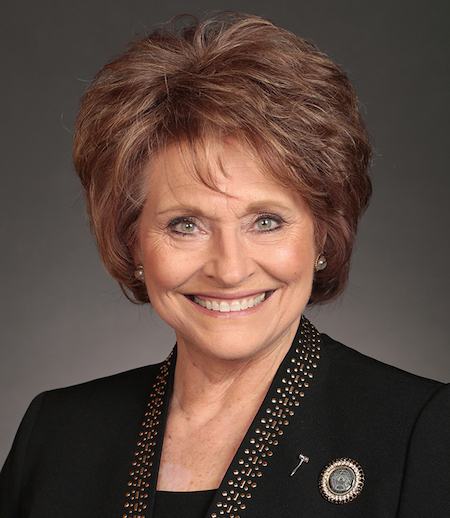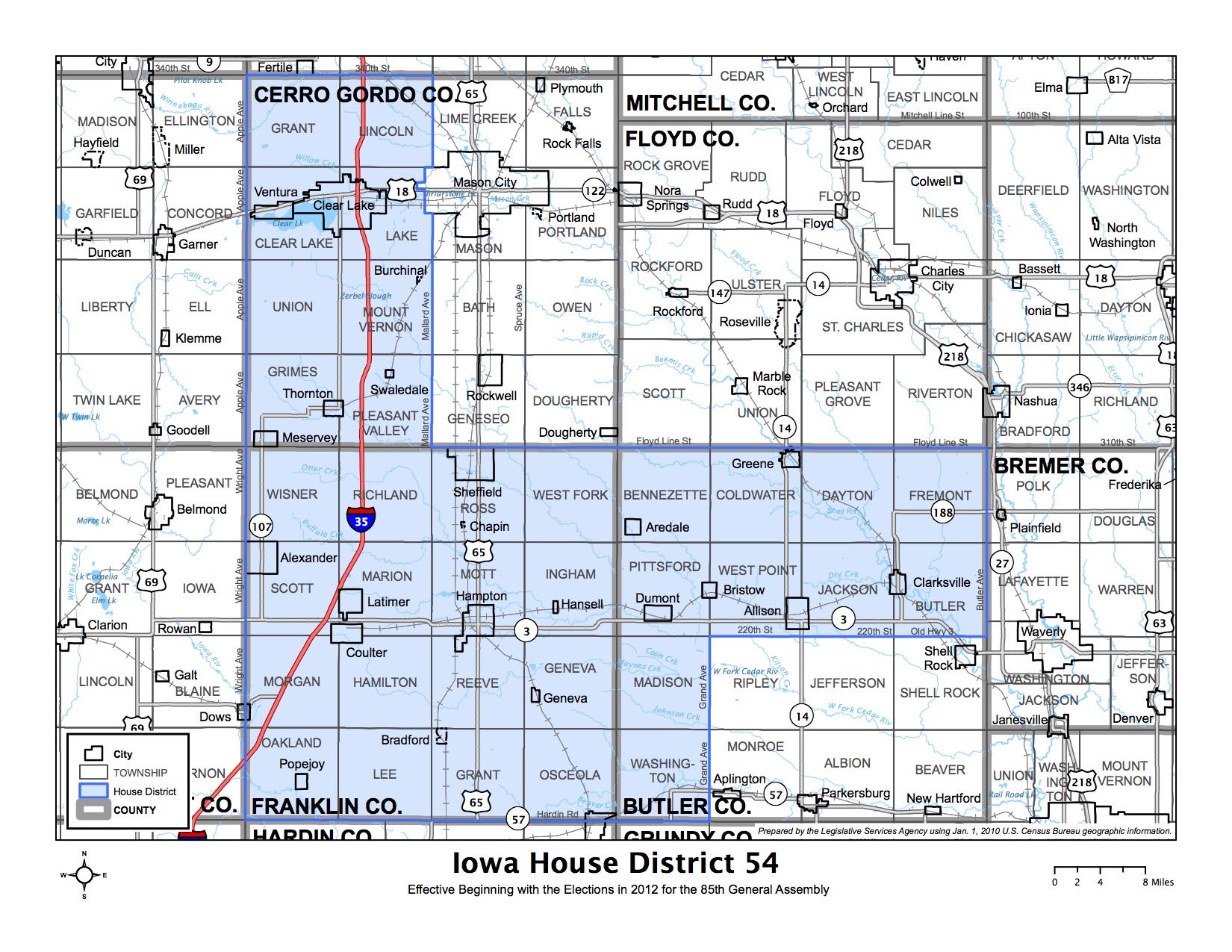Iowa House Speaker Linda Upmeyer raised more than $1.5 million during the 2018 election cycle and donated most of the money to the Republican Party of Iowa, for use in competitive state legislative races. Upmeyer surely raised significant funds during the first nine months of this year, before she confirmed plans to step down as speaker. (We won’t know how much until Iowa lawmakers file their next campaign finance disclosures in January.)
What’s going to happen to the money in Upmeyer’s campaign account, given that the soon-to-be-former caucus leader won’t run for re-election in 2020?
Iowa law permits a state lawmaker not seeking re-election to use campaign funds for “educational and other expenses associated with the duties of office, or constituency services.” Upmeyer has traditionally spent little on such costs. For example, she reimbursed herself only about $960 for mileage during all of 2017.
So she will almost certainly be transferring most of what she has raised this cycle.
State law allows candidates to transfer campaign funds in five different ways:
a. Contributions to charitable organizations unless the candidate or the candidate’s spouse, child, stepchild, brother, brother-in-law, stepbrother, sister, sister-in-law, stepsister, parent, parent-in-law, or stepparent is employed by the charitable organization and will receive a direct financial benefit from a contribution.
b. Contributions to national, state, or local political party central committees, or to partisan political committees organized to represent persons within the boundaries of a congressional district.
c. Transfers to the treasurer of state for deposit in the general fund of the state, or to the appropriate treasurer for deposit in the general fund of a political subdivision of the state.
d. Return of contributions to contributors on a pro rata basis, except that any contributor who contributed five dollars or less may be excluded from the distribution.
e. Contributions to another candidate’s committee when the candidate for whom both committees are formed is the same person.
Past practice suggests Upmeyer will give almost her whole bank balance to the Republican Party of Iowa, as she did shortly before the 2018 election. That’s also what former Senate Majority Leader Bill Dix did after resigning from the legislature in 2018. Former Iowa House Minority Leader Kevin McCarthy donated most of his unspent funds to the Iowa Democratic Party following his resignation in 2013.
I’ve never heard of a retiring Iowa legislator directing campaign funds to the state treasurer or refunding a significant portion to contributors (in Upmeyer’s case, mostly political action committees and wealthy individuals). Option “e” is out because Upmeyer’s not running for any other office in 2020.
What about the first option? A reader speculated that Upmeyer might donate a large sum to some conservative advocacy group that has non-profit status. I sought guidance from Megan Tooker, executive director of the Iowa Ethics and Campaign Disclosure Board, which is charged with enforcing this code section. Tooker pointed me to a 2012 advisory opinion, in which the board stated that a “charitable organization” is a tax-exempt organization under section 501(c)(3) of the Internal Revenue Code.
In other words, Upmeyer could not transfer campaign funds to any political advocacy group organized as a 501(c)(4)–as are many “dark money” groups that spend heavily on elections.
The outgoing speaker could give money from her campaign account to some 501(c)(3) non-profit, as long as neither she nor any relative defined in the Iowa Code section works for the charity and could benefit financially.
Former U.S. House Speaker Newt Gingrich, whom Upmeyer has long admired, was reprimanded and fined $300,000 in 1997 for a “charitable money laundering” scheme. Donors would make tax-deductible contributions to a 501(c)(3) group, which forwarded the money to Gingrich’s GOPAC committee for use to benefit Republican Congressional candidates.
I don’t expect Upmeyer to try anything nefarious with her campaign funds. The bulk will likely go to the state Republican Party, allowing Speaker-select Pat Grassley and incoming Majority Leader Matt Windschitl to spread the money around the many battleground Iowa House districts.
Final note: To my knowledge, no candidates have formally launched a campaign for the House seat Upmeyer is vacating. House district 54 (map enclosed below) is solid red. The latest official figures show the district contains more than twice as many registered Republicans as Democrats. Joni Ernst gained nearly 60 percent of the vote here in the 2014 U.S. Senate race, and Donald Trump and Kim Reynolds each gained 62.7 percent in the district in 2016 and 2018, respectively. Upmeyer has run unopposed in each of the last four elections.
When rumors of the speaker’s impending departure began to circulate again this summer, I reached out to Gabe Haugland. The Clear Lake business owner who has served in Afghanistan had expressed interest in running for House district 54 in 2012, but Upmeyer bigfooted him by moving into the district. Haugland provided the following comment to Bleeding Heartland on August 31 and confirmed last week that it is still accurate.
“Speaker Upmeyer has served the district and our state very well and will be missed. I am still on Active Duty representing victims of Sexual Assault in the Army until October 1, 2019 and am therefore unlikely to run. My wife, Carolyn Nicholas Haugland, interned for Speaker Upmeyer and then clerked for Representative Sandy Greiner. Carolyn will take a serious look at the race.”
Carolyn Haugland is a Drake Law School graduate who manages The Meadows, a low-income and disabled housing property in Clear Lake (her home town). She was Miss Iowa 2006 and is active in various community organizations.
Some sources in the area mentioned Bennett Smith, a Clear Lake City Council member who teaches at North Iowa Area Community College. Smith had no comment when I asked whether he is considering running for the legislature.
Other possible Republican candidates include Emily Sukup Schmitt, general counsel at Sukup Manufacturing in Clear Lake, and Shannon Latham, last year’s GOP challenger against State Senator Amanda Ragan in Iowa Senate district 27.


